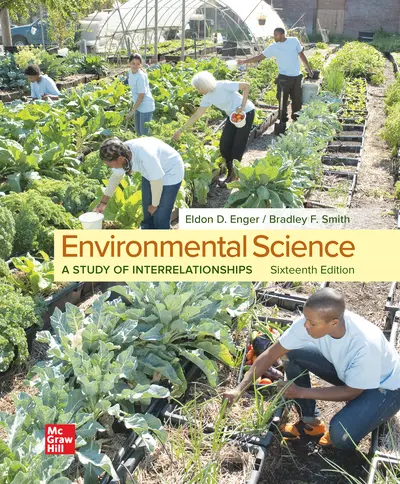
Orders within the United States are shipped via FedEx or UPS Ground. For shipments to locations outside of the U.S., only standard shipping is available. All shipping options assume the product is available and that processing an order takes 24 to 48 hours prior to shipping.
View PriceNote: Connect can only be used if assigned by your instructor.
Learn more about Connect >Orders within the United States are shipped via FedEx or UPS Ground. For shipments to locations outside of the U.S., only standard shipping is available. All shipping options assume the product is available and that processing an order takes 24 to 48 hours prior to shipping.
View Price Note: GO can only be used if assigned by your instructor. Learn more about GO* The estimated amount of time this product will be on the market is based on a number of factors, including faculty input to instructional design and the prior revision cycle and updates to academic research-which typically results in a revision cycle ranging from every two to four years for this product. Pricing subject to change at any time.
Quick Actions (Only for Validated Instructor Accounts):
Request an Ebook Sample Request a Print Sample Contact a RepEnvironmental Science: A Study of Interrelationships is a full-color, introductory environmental science text that is known for being concise, conceptual, and value-priced. The approach and reading level cover the basic concepts without overloading students with too much detail. The authors reinforce the text's central theme of "interrelationships" by providing a historical perspective, information on economic and political realities, discuss the role of different social experiences, and integrate this with the crucial science to describe the natural world and how we affect it.
Eldon Enger
Eldon D. Enger received a B.A. and an M.S. from the University of Michigan. He is professor emeritus of biology at Delta College, where he taught biology, zoology, and environmental science and was active in curriculum and course development. Professor Enger is an advocate for variety in teaching methodology and feels that if students are provided with varied experiences, they are more likely to learn. Professor Enger's classes include writing assignments, student presentation of lecture material, debates by students on controversial issues, field experiences, individual student projects, and discussions of local examples and relevant current events. Professor Enger was a Fulbright Exchange Teacher to Australia and Scotland, received the Bergstein Award for Teaching Excellence and the Scholarly Achievement Award from Delta College, and participated as a volunteer in Earthwatch Research Programs.
Bradley Smith
Brad is the Dean Emeritus of Western Washington University in Bellingham, Washington. Prior to assuming the position as Dean in 1994, he served as the first Director of the Office of Environmental Education for the U.S. Environmental Protection Agency in Washington, D.C. Brad also served as the Acting President of the National Environmental Education and Training Foundation in Washington, D.C., and as a Special Assistant to the EPA Administrator. Before moving to Washington, D.C., Dean Smith was a professor of political science and environmental studies for 15 years, and the executive director of an environmental education center and nature refuge for five years.
Creating accessible products is a priority for McGraw Hill. We make accessibility and adhering to WCAG AA guidelines a part of our day-to-day development efforts and product roadmaps.
For more information, visit our accessibility page, or contact us at accessibility@mheducation.com
Reduce course material costs for your students while still providing full access to everything they need to be successful. It isn't too good to be true - it's Inclusive Access.